 An Open Letter to University Presidents
An Open Letter to University Presidents
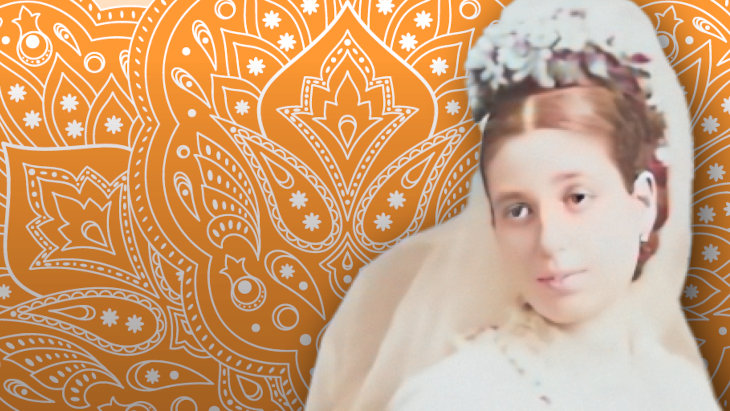

9 min read
Torah scholar, financial leader, socialite and mother, Farha blazed a path for women’s scholarship and business in India and Britain.
Bombay - present day Mumbai - was a bustling, growing home to many distinct Jewish communities in the year 1856, when Farha Sassoon was born there. Bene Israel Jews, who traced their presence in India to an ancient shipwreck which deposited a Jewish community on India’s shores, began migrating to Bombay in the late 1700s, building synagogues and other civic institutions. Other Jews from Yemen, Afghanistan, Iran and Bukhara later poured into the city, drawn by its rapidly expanding business opportunities.
Yet nobody electrified Bombay’s Jewish community as much as David Sassoon, Farha’s great grandfather. He moved to India in 1832 to escape rising persecution from local rulers in Iraq, and founded the trading company David Sassoon & Co. in his new home. One observer summed up the business: “Silver and gold, silks, gums and spices, opium, cotton wool and wheat - whatever moved over land and sea felt the hand and bore the mark of Sassoon and Company.”
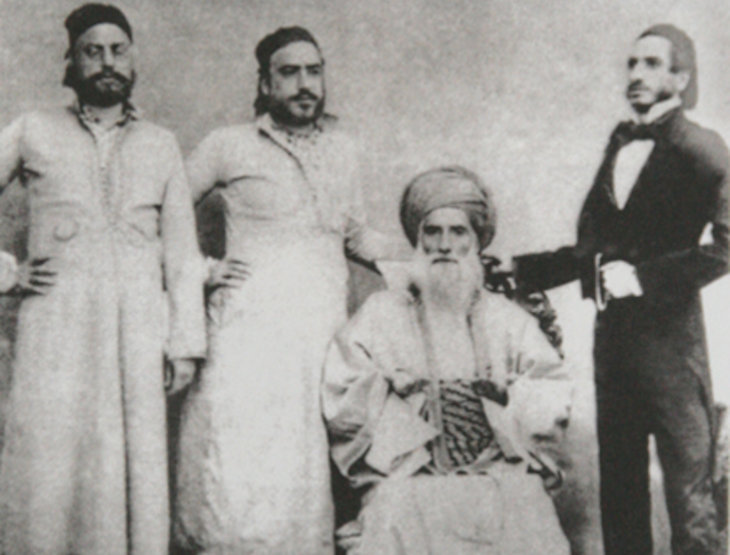 David Sassoon (seated) with his sons Elias David Sassoon (left), Albert Abdallah David Sassoon (middle) and Sassoon David Sassoon (right), 1850
David Sassoon (seated) with his sons Elias David Sassoon (left), Albert Abdallah David Sassoon (middle) and Sassoon David Sassoon (right), 1850
David developed Bombay’s Sassoon Docks, and before long opened company branches throughout India, China, Hong Kong, Japan, Iraq and Britain, sending his sons to various locales to oversee their businesses there. Some likened the Sassoon family to the Rothschilds, another Jewish family with business interests spanning many countries, bestowing the moniker “the Rothschilds of the East”.
David Sassoon built synagogues, Jewish hospitals and schools in Bombay. Farha - her Jewish name was Frecha - was David’s great granddaughter. Farha descended from giants of piety and business on both sides of her family. Her father, Rabbi Yechezkel Gabbai, was from another wealthy and intensely pious Iraqi Jewish family who’d moved to India. Like many other Bombay Jews, Farha spoke Hindi and English outside her home, and Judeo-Arabic with her relatives.
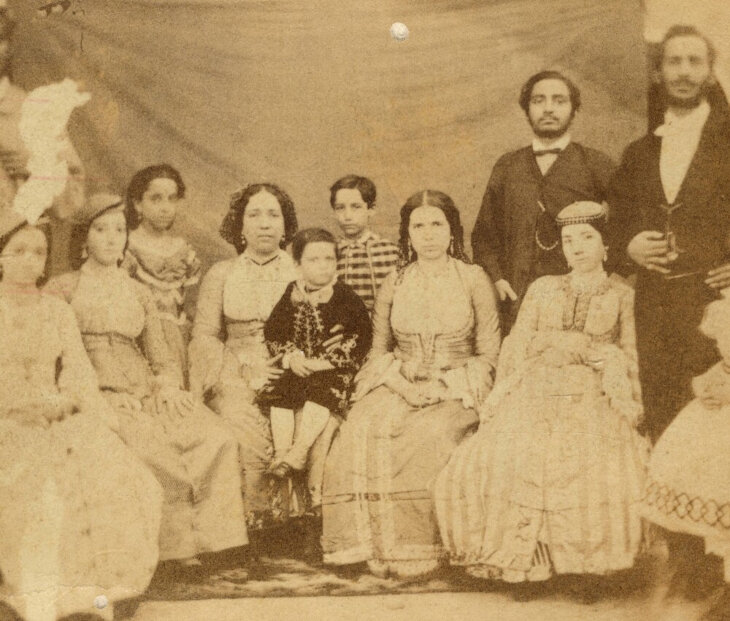 The Sassoons
The Sassoons
At the time, Bombay Jews competed in business with the Parsees, Zoroastrians who fled from Persia to India in the 7th and 8th Centuries. Jews began to copy the Parsee tradition of educating their sons but not their daughters. For Farha’s parents, however, failing to teach their brilliant daughter was not an option. Farha attended a Catholic school in Bombay, and her parents hired rabbis from Baghdad to tutor her and her siblings in the evenings. She became fluent in Hebrew, Aramaic (the language of the Talmud), Hindi, English, French and German.
She married David Solomon’s youngest son Shlomo in 1876. Twenty-eight years her senior, Shlomo was also her great-uncle. Despite its unconventionality, the marriage seems to have been happy. Both Farha and Shlomo were intensely religious, quick-witted and hard-working, and they worked together as a team in both the realm of business and in their private philanthropic work. They had three children together - David Solomon, Rachel and Mozelle - and moved to a magnificent house outside of Bombay in the town of Pune, where Farha and Solomon spent much of their time studying Jewish texts.
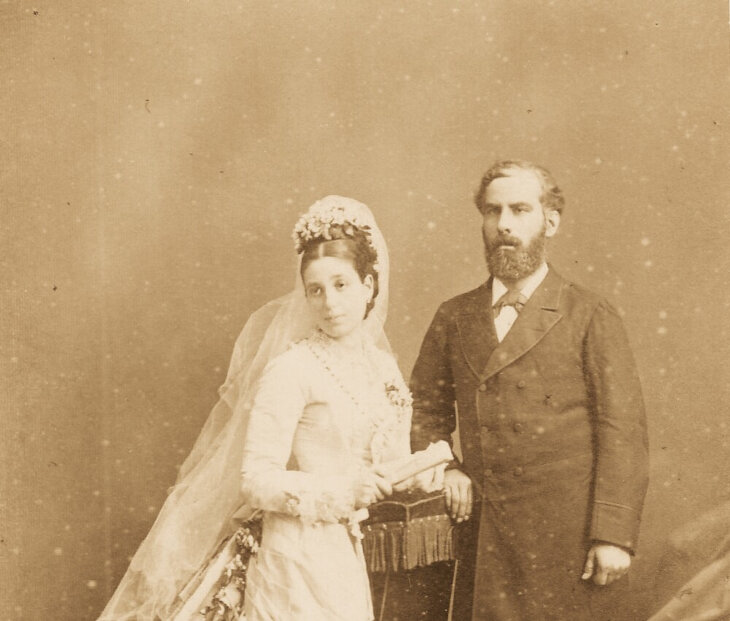 Farha and Solomon (Shlomo)
Farha and Solomon (Shlomo)
Friends noted that Farha adored her husband for his piety and modesty. When he entered the synagogue he’d founded in Bombay, it’s said that Solomon would quietly slip in through a side door so as not to attract attention to himself.
Farha and Solomon were extremely wealthy and occupied the highest rungs of the British Empire’s social structure; the Prince of Wales even dined at their house in Pune. Yet while she could entertain in the highest of style, Farha kept a strictly kosher kitchen and encouraged her guests to try the myriad different delicacies she served. (Years later, the Prince of Wales still talked about the gifts of amba - a pickled mango relish which is popular in Mizrahi Jewish cooking - and dried apricots which Farha gave him.)
When Solomon traveled to Bombay for business, Farha broke all taboos on women’s roles and accompanied him to the city’s financial district in Elphinstone Circle, sitting in on business meetings and acting as an active partner in the family company. At the time, it was a shocking assertion of independence. Despite some misgivings in Bombay’s business community, Farha eventually was accepted as a fully-fledged manager within David Solomon & Co.
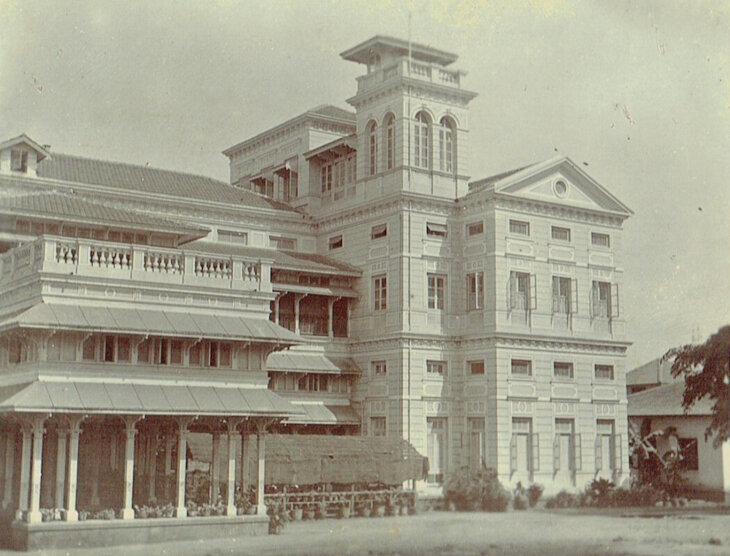 Home of Flora and Solomon, Bombay
Home of Flora and Solomon, Bombay
Her position stood her in good stead in 1894, when Solomon suddenly passed away. Farha declared that she was ready to take Solomon’s place. Biographer Joseph Sassoon notes that the “Sassoon family was not prepared for a female leader. They couldn’t look to the old country and Baghdad for a precedent, and though seemingly every day brought news of the suffragettes' activities in England, women did not run global companies there either.” (Quoted in The Sassoons: The Great Global Merchants and the Making of an Empire by Joseph Sassoon. Pantheon Books, New York: 2022)
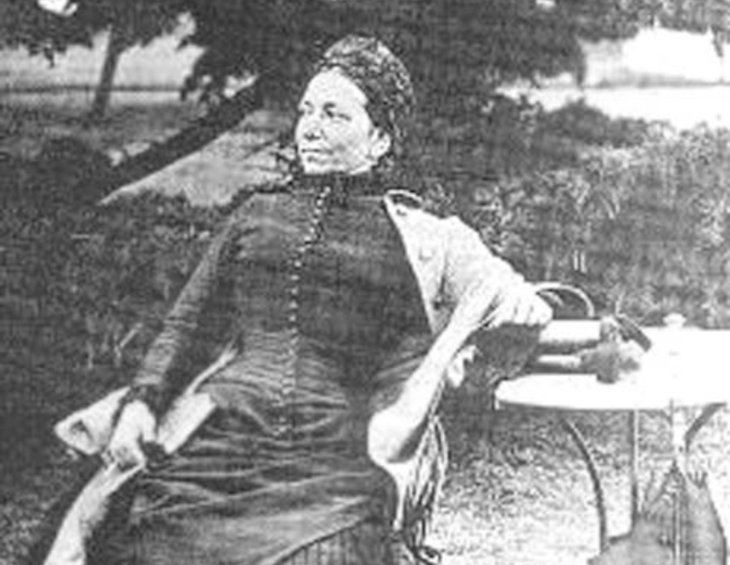 Flora Sassoon
Flora Sassoon
After some discussion, it was agreed: Farha Sassoon would take over the running of David Sassoon and Co.’s operations in Bombay, as a full partner. With Farha at the helm, the company weathered a number of storms, including the outbreak of the First Sino-Japanese War and falling commodity prices. Despite the difficult business environment, the Bombay office’s profits rose during Farha’s leadership.
Business was only one of Farha’s occupations. A vigorous woman in her late 30s when she became Chairwoman of the company, Farha was a hands-on parent to her three children; letters show her arranging playdates and arranging for her son to take a boat tour of the East accompanied by servants and “a small stock of live fowls on board…to keep kosher while aboard.” Farha’s daughter Mozelle had been dropped by a nurse when she was an infant and suffered from spinal injuries her whole life. Farha doted on her, making sure Mozelle was looked after, and also tutored her - and her other children - in Jewish studies.
Farha threw herself into improving her homeland. She campaigned against the practice of purdah, according to which some Indian women hid themselves away from everyone but close family members. Farha also financially supported Waldemar Mordechai Wolff Haffkine, the Russian-born Jewish bacteriologist who set up a laboratory in the Byculla neighborhood of Bombay, where he developed vaccines against cholera and the Bubonic plague.
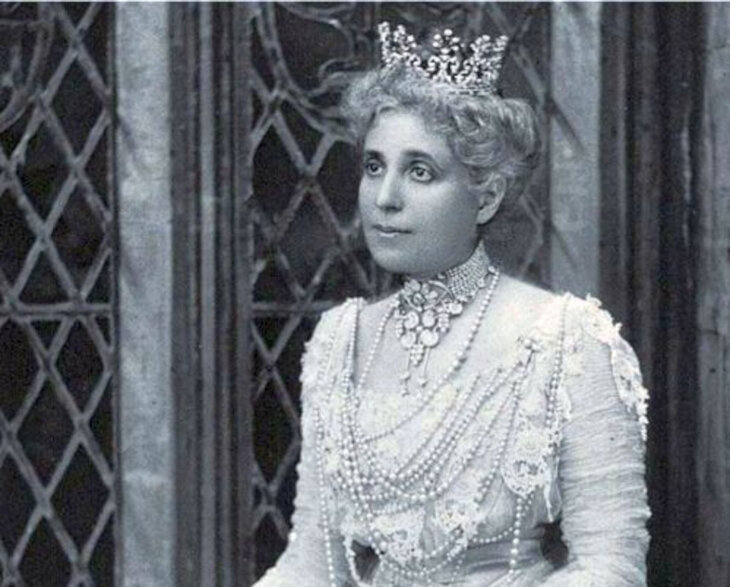
Throughout her life, Farha kept up a busy correspondence with many of the most eminent rabbis of the age. In 2007, the Sassoon family published a book titled Nahalat Avot (Heritage of our Forefathers), comprising the many letters by great Torah sages that were sent to the Sassoon family. A large proportion of them were sent to Farha. Surprisingly, many of them referred to Farha as “Rabbanit,” a term that is used today to denote a learned woman in the Orthodox tradition, but one that was virtually unheard of in the 1800s.
In 1901, shifting alliances within David Sassoon & Co. forced Farha out of her chairmanship. Many of her relatives had moved from Bombay to London, and Farha joined them there, hoping to obtain a higher level of medical care for Mozelle there. She adopted the anglicized name Flora, and devoted herself entirely to Torah study and to entertaining on a grand scale.
Few of the visitors to Fahra’s grand house at 32 Bruton Street in London’s grand Mayfair neighborhood realized that her legendary banquets were strictly kosher. She held open salons once a week where the cream of London’s society would gather to speak with one another and to hear Farha’s considered opinions on the matters of the day. The historian Cecil Roth said she “walked like a queen, talked like a sage and entertained like an Oriental potentate.”
Farha had a strict policy of responding to letters on the same day they arrived. Jews all over the world appealed to her; many of the letters were simply addressed to “Flora Sassoon, England” - and somehow found their way to her. She donated money to help rebuild San Francisco after the devastating earthquake there in 1906, supported Jewish schools and charities, and bankrolled Jewish hospitals and orphanages in England and across the Middle East. With the rise of Nazism, Farha campaigned to support Jewish refugees applying to move to England.
A staunch Zionist, Farha was outspoken in her support of establishing a Jewish state in the Land of Israel. She traveled widely, always bringing along an entourage of ten Jewish men so that she could pray with a minyan, as well as her own personal shochet (kosher slaughterer), ensuring that she could always access kosher food.
On one trip, to Baghdad in the early 20-century, Farha met with the Chacham Yosef Chaim (1832-1909), the renowned rabbi and Jewish scholar known as the Ben Ish Chai. While visiting his synagogue, Farha was asked to read publicly from a Torah scroll that had been donated by the Sassoon family, an honor that was highly unusual to proffer to a woman.
Yet Farha Sassoon was no ordinary woman. At a time when female scholarship was circumscribed, she authored Jewish articles about Talmudic and Midrashic texts for The Jewish Forum, a scholarly publication in the United States. An article she wrote about the Medieval Jewish commentator Rashi included a learned discussion of his work, and also highlighted the many erudite female members of his family.
Soon after her arrival in England, Farha was invited to speak at Jew’s College, London’s premier rabbinical training school. In 1924 she was invited back to preside over Speech Day there, and gave a learned speech teeming with Talmudic references and inspiring lessons to the budding rabbis in the audience. Her speech was later published by Oxford University Press.
When Farha died in 1936, Rabbi Yitzhak Halevi Herzog, the Chief Rabbi of the Land of Israel (and former Chief Rabbi of Ireland) noted that she had been “a living well of Torah, of piety, of wisdom, of goodness and charity, the staunchest loyalty to tradition, and out of her wonderful well Israel could draw in abundance noble incentives and lofty inspiration.”
Farha was buried on the Mount of Olives in Jerusalem, in a plot that she’d purchased on a previous trip to Israel.
excerpted from Portraits of Valor: Heroic Jewish Women You Should Know
